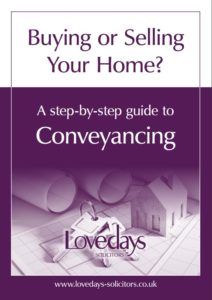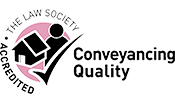- You & Your Family
- Your Job
- Family Law
- Divorce and Separation
- Finances on Divorce
- Dissolution of Civil Partnership
- Separation
- Cohabitation Agreements
- Finances on Breakdown of Cohabitation Relationship
- Prenuptial Agreements
- Grandparents' Rights
- Step-Parents' Rights
- Child Maintenance
- Parental Responsibility
- Paternity Disputes
- Buying Property Jointly
- Probate
- Wills
- Your Property
- Conveyancing
- Partnerships
- Disputes
- Boundary Disputes
- Dealing with Rent Arrears
- Japanese Knotweed Claims
- Landlord and Tenant Disputes
- Landlord Harassment & Illegal Eviction
- Negligence Claims Against Builders & Developers
- New Build Property Disputes
- Noisy Neighbour Disputes
- Personal Debt Collection
- Property Misrepresentations Claims
- Rights of Way Disputes
- Section 21 No Fault Evictions
- TOLOTA Claims
- Tree & Hedge Neighbour Disputes
- Your Business
- About Us
Trusts and Tax Solicitors
Are you concerned about protecting your assets now and in the future? Our established Trusts & Tax team offer a full range of legal and taxation services to individuals and trustees.
Introduction to Trusts
By creating a trust, you are placing assets under the control of someone you nominate. This may be yourself, a professional trustee or someone you trust. The people who are in charge of the trust are called trustees.
The trustees will manage the trust in accordance with how you set the trust up. This can continue even after your death.
Trusts can be used to manage wealth, investment, land and property. You can set up trusts for a number of purposes such as:
- Provide for loved ones
- To support children and grandchildren in their education
- Pass assets to the next generation
- Provide for children and partners from different relationships
- Reduce tax
- Protect assets from creditors or divorcing partners.
Administering a trust can be a complex, time-consuming and stressful process – in both human and legal terms. We can explain the process at every step and ensure it runs as smoothly and is as straightforward as possible.
Our Derbyshire based specialist tax lawyers can determine whether a trust suits your needs and if what time of trust will be best for you. We can then help you set up the trust and manage it for you.
{quote}
The Legal Framework of Trusts
When you create a trust, you enter into a legal relationship with the trustees of that trust as well as the beneficiaries. The trustees that are listed on the trust are entrusted with managing the assets within the trust for the specified purpose that was outlined by you, the settlor.
Trusts have several legal characteristics that are beneficial to know. These characteristics are:
- The assets within the trust are a separate fund that are not considered as part of the trustee’s estate.
- The legal title to the trust assets stand in the name of the trustee(s) or the name of someone else acting on behalf of the trustee(s).
- The trustee(s) named on the trust have the power and duty to manage, employ, or dispose of the assets within the terms of the trust and the legal duties imposed on them as a trustee.
- A trust may still remain valid if the person who set up the trust retains some rights and powers, and if the beneficiary of the trust is also named as a trustee with managing rights.
Types of Trusts
In UK law there are various type of trusts that can be created, each with different characteristics. It is important to speak with a lawyer when creating a trust in order to determine which type will best suit your requirements.
Bare Trusts
The assets included in a bare trust are held in the name of one of the trustees. Additionally, the beneficiary of a bare trust has the right to all of the capital and income of the trust, provided that they are over the age of 18. The benefit of a bare trust is that any assets that have been set aside by the settlor will go directly to the intended beneficiary.
Bare trusts are commonly used to pass assets onto younger people and the trustees look after the included assets until the beneficiary is old enough to access them.
For example, you may leave some money in your will for a child, this money will be held in a trust. Once your child reaches 18 years of age, they are entitled to those assets and any additional income (such as interest) that they have accrued, taking possession of them at any point they choose.
Interest in Possession Trusts
An interest in possession trust allows you to pass on any income generated from the included assets to a beneficiary.
For example, if you own shares in the stock market, you can create a trust for all owned shares. Then within the terms of the trust, you can state that when you die the income generated from those shares goes to your spouse for the rest of their life. When your spouse dies, the ownership of the shares will pass to your children.
In this instance, your spouse is the beneficiary and has an ‘interest in possession’ in the trust, but they do not have a legal right to the shares themselves.
Discretionary Trusts
With a discretionary trust, the trustees can make decisions about how to use the trust income and sometimes the capital.
Depending on the trust deed, the trustees can decide:
- What gets paid out from the trust.
- Which beneficiaries’ payments are made to.
- How often the trust pays out to the beneficiaries.
- Any conditions that beneficiaries must meet before receiving payments from the trust.
Discretionary trusts are often created to put assets aside for future needs, such as a grandchild who may need more financial support than other beneficiaries, or beneficiaries who are not capable or responsible enough to deal money on their own.
Accumulation Trusts
Accumulation trusts allow the trustees to accumulate income within the trust and add it to the capital within the trust. They may also be able to pay out income in a similar manner to discretionary trusts.
Mixed Trusts
Mixed trusts are a combination of more than one type of trust. The various parts of the trust are treated in accordance with the tax rules that apply to each part.
Settlor-interested Trusts
Settlor-interested trusts are where the settlor or their spouse/civil partner benefits from the trust. These trusts can come in the form of an interest in possession trust, accumulation trust, or a discretionary trust.
For example, if you cannot work due to illness, you can set up a discretionary trust to ensure you have money in the future. As the settlor, you may also benefit from the trust as the trustees can make payments to you.
Non-resident Trusts
These are trusts where the trustees are not residents of the UK for tax purposes. The tax rule for these types of trusts are very complicated so it is highly advisable to seek the guidance of a lawyer when try to set up a non-resident trust.
{quote}
Trusts & Taxes
Different types of trusts have different tax implications across income tax obligations as well as capital gains tax and inheritance tax. Speak to a lawyer to fully understand the tax implications of your specific or visit the GOV UK website for more information on the tax implications of trusts.
Using Trusts for Inheritance Tax Planning
It is possible to reduce your inheritance tax bill with a trust. This is because when you put assets into a trust it is no longer considered part of your estate, provided that certain conditions are met.
The Role of Trustees
The specific role of a trustee may change depending on the type of trust and who created it. However, in general the trustee(s) are the legal owners of the assets held in a trust and their role is to:
- Manage the assets in accordance with the settlor’s wishes as they were outlined in the trust deed or their will.
- Manage the trust on a day-to-day basis and pay any tax that the trust might accrue.
- Decide how to invest or use the trust’s assets.
The trust can still continue of the trustee(s) where to change but their must always be at least one trustee.
{quote}
How a Lawyer Can Help with Trusts
A lawyer can help you to decide on the right type of trust for your needs as well as advise on any potential tax implications of your choice. Things that a lawyer can help you with in regard to trusts include:
- Advising on the right type of trust.
- Setting up a trust.
- Trust management and administration.
- Trust disputes and resolution.
You may choose your lawyer to be a trustee which will allow them to provide the other trustees and the beneficiaries of trust with their legal expertise to ensure that the management of the trust is within accordance of the law.
How to Setup a Trust
You can set up a trust whenever you like, or you can write one into your will. When you set up a trust you must clearly state what assets will be included in the trust, who the trustees and beneficiaries are, and when the trust becomes active.
{quote}
Make An Enquiry
If you would like to get in touch with us please either call us on 01629 56660 or make a Free Online Enquiry.
Whether you are based in Matlock, Wirksworth or anywhere across England and Wales we will be able to help. We have over 100-year history of helping the people of Derbyshire and the surrounding areas.

Free Guide
If you don’t know your leasehold from your freehold, then get our Free Conveyancing Guide. It contains details about the steps you will need to take with any property transactions. The Guide giving you detailed guidance on what your lawyer will be doing for you and what to look out for.


Lovedays Solicitors, Brooke-Taylors Solicitors, Potter and Co Solicitors and Andrew Macbeth Cash and Co Solicitors are the trading names of Derbyshire Legal Services Limited which is a company registered in England and Wales under company number 08838592. Registered office Sherwood House, 1 Snitterton Road, Matlock, Derbyshire, DE4 3LZ.
Authorised and Regulated by the Solicitors Regulation Authority under SRA ID number 637916.
-
01629 56660
-
This email address is being protected from spambots. You need JavaScript enabled to view it. -
Sherwood House
1 Snitterton Road
Matlock
Derbyshire
DE4 3LZ
© Copyright 2019 Derbyshire Legal Services Limited | Website by WebWorks